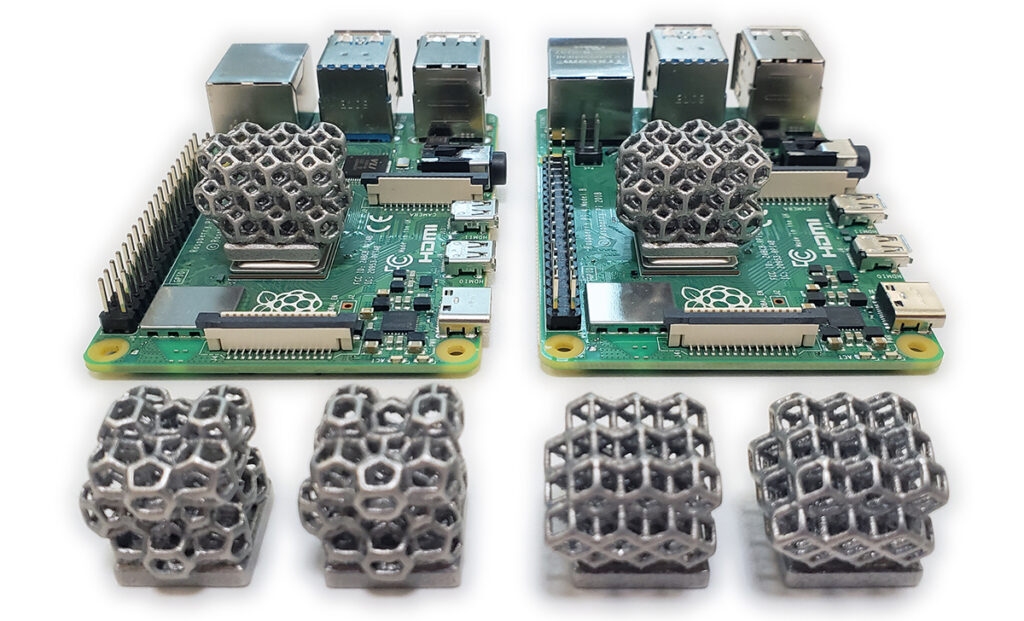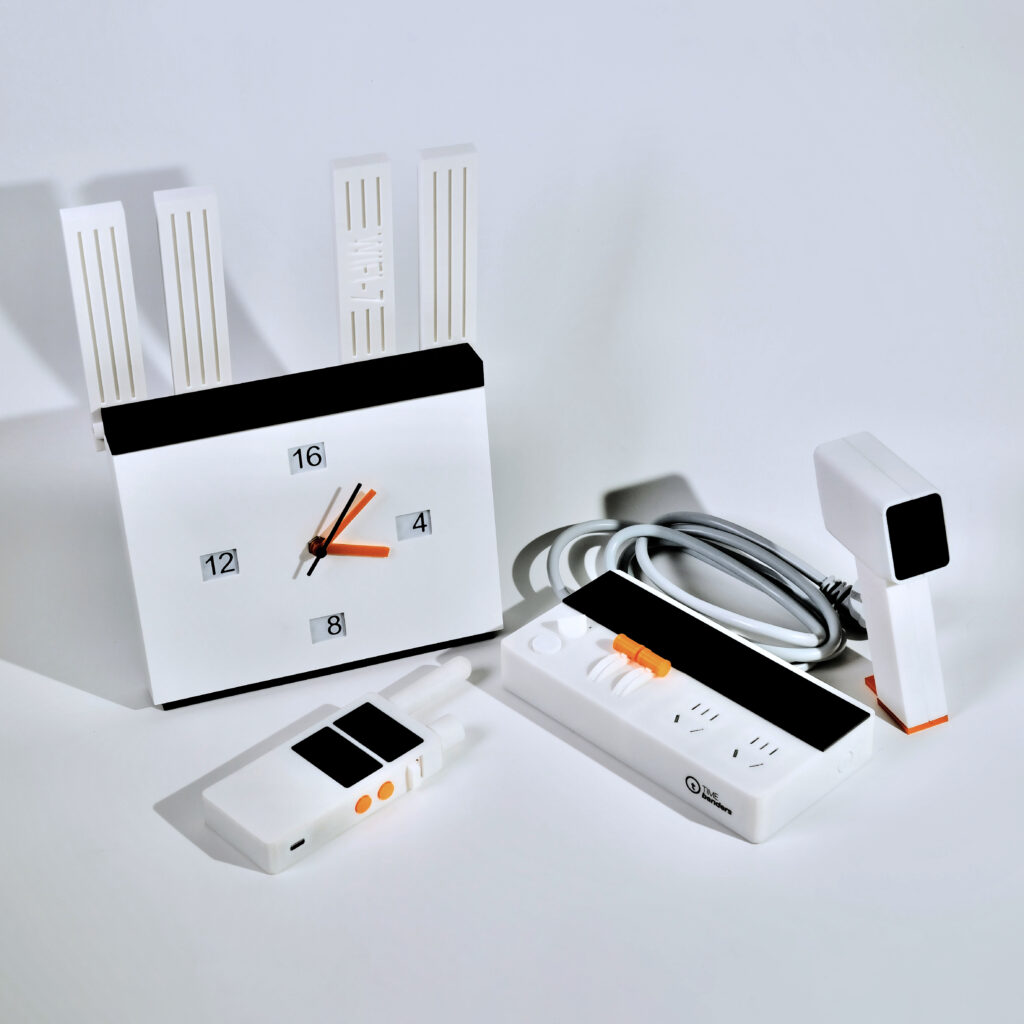This project was motivated by an interest in exploring applications of additive manufacturing beyond functional (testing, demonstrating utility), expressive (articulating aesthetic and semantic ideas), economic (automating low-volume production), and logistical (bringing manufacturing where other processes cannot go) purposes. Our team, consisting of Bai Jiaming and Liang Haowen of the SUSTech Department of Mechanical and Energy Engineering, Chitraj Bissoonauth, and Thomas Fischer, set out to show that additive manufacturing has much to offer to empirical cross-morphological performance comparisons.

For this purpose, we compared the performance of a set of heat sinks based on different heat sink morphologies. We fabricated conventional finned heat sinks as well as heat sinks based on open-foam cellular lattices. We produced both a “uniform” and a “tapered” variant of each of these.

Without a unified comparative basis, such diverse morphologies are commonly very difficult to compare. To establish such a basis, we used parametric geometry modeling and computational optimization to unify the volumes (and, hence, mass as well as material cost) of all heat sinks to 2,000 mm2.

We evaluated the thermal performance of each resulting heat sink in a 55-minute passive cooling application to the ARM CPU a fully loaded, over-clocked Raspberry Pi while monitoring CPU temperature (using internal sensor data and external thermal imaging) and dynamic CPU clocking. Our results are available in the open-access article linked below.
References


